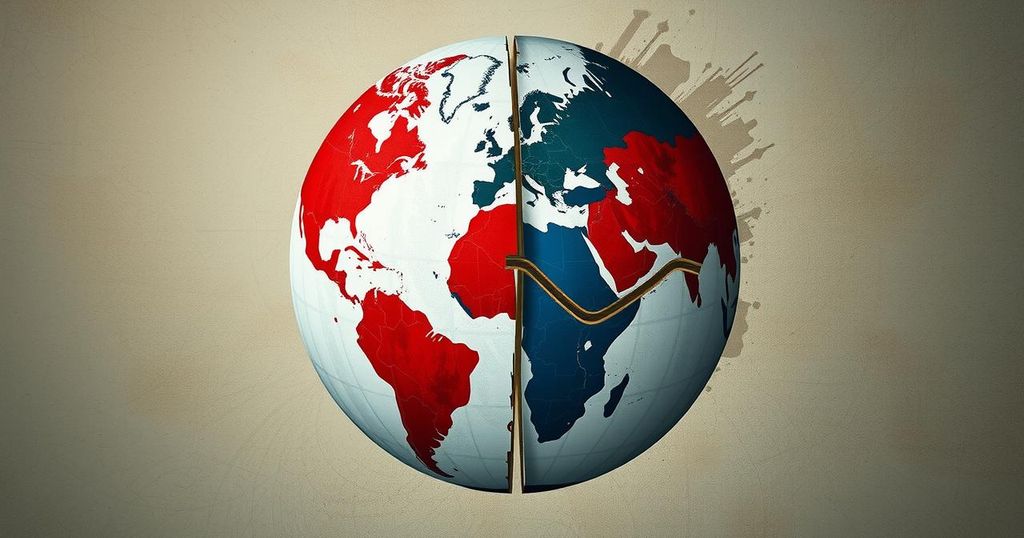U.S. lawmakers are seeking to block arms sales to the UAE, accusing it of supplying weapons to the RSF amid Sudan’s civil war. While a UAE official denied these allegations, the situation raises concerns about humanitarian impacts of continued arms trade. Legislation has been introduced to stop a significant arms sale, highlighting the severity of the conflict.
Two U.S. lawmakers are determined to obstruct arms sales to the United Arab Emirates (UAE), alleging that the UAE is supplying weapons to the paramilitary Rapid Support Forces (RSF) involved in Sudan’s civil war. A UAE representative has denied these claims, asserting that the UAE’s involvement is strictly humanitarian and focused on resolving the conflict peacefully.
The RSF and the Sudanese army staged a coup in 2021, which led to the destabilization of Sudan’s civilian governance. Their subsequent fallout in April 2023 triggered a war that has resulted in severe humanitarian repercussions, with half the population experiencing hunger. Senators Chris Van Hollen and Representative Sara Jacobs emphasized the urgency to act against the UAE’s alleged support for the RSF, citing concerns for Sudan’s humanitarian crisis.
Senator Van Hollen remarked on the necessity for the U.S. to not overlook the UAE’s contribution to suffering in Sudan, advocating for legislative measures to halt arms supply to the UAE. Representative Jacobs highlighted that withholding weapon sales could cut off the RSF’s supply chain and potentially restore stability in Sudan. The UAE official maintained that the country is not providing any support to the conflicting parties and calls for a ceasefire.
U.S. law requires Congress to scrutinize major arms deals, providing mechanisms to block sales. Although the UAE is a significant U.S. arms customer, lawmakers filed proposals in both congressional chambers in November to suspend an impending $1.2 billion arms sale involving guided multiple launch rocket systems and related munitions.
Despite the likelihood that their efforts may not garner widespread support, especially considering the UAE’s strategic importance to U.S. interests, the lawmakers aim to spotlight a crisis that has deteriorated into one of the most severe humanitarian disasters globally.
The ongoing civil war in Sudan has emerged as one of the gravest humanitarian crises in recent years, spurred by escalating violence between the RSF and the Sudanese army. Following the 2021 coup, these former allies descended into conflict, prompting international concerns regarding arms sales to the UAE, suspected of fueling the situation. U.S. lawmakers are evaluating how to leverage arms export regulations to influence the course of the conflict and mitigate human suffering in Sudan.
In summary, U.S. legislators are actively pursuing measures to prevent arms sales to the UAE amid allegations of their involvement in arming the RSF in Sudan. While the UAE denies these accusations and emphasizes its humanitarian objectives, the potential resolution of the Sudan crisis remains a pressing issue. The arms sales proposal, if successfully halted, could assist in curbing the ongoing violence and alleviating suffering in the affected population.
Original Source: www.usnews.com






